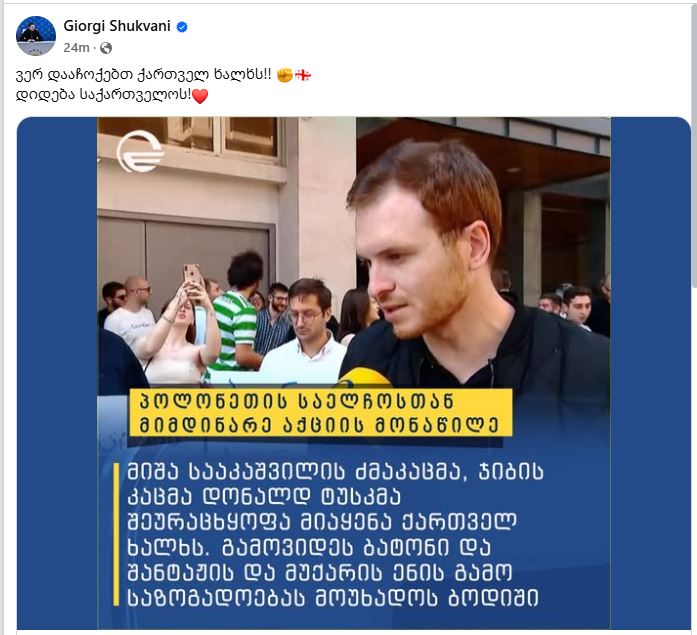A “Georgian Dream” Rally Framed as a Youth Protest
On June 12, 2025, in response to a question regarding migration policy in the Polish Sejm, Prime Minister Donald Tusk stated that his government is working to gain EU support for suspending or restricting Georgia's visa-free travel. He cited democratic backsliding and migration-related concerns as reasons. This statement was followed in Georgia by responses from Irakli Kobakhidze, Shalva Papuashvili, Davit Matikashvili, and other representatives of the Georgian Dream party, who disseminated messages against Tusk and the Polish government. The next day, on June 13, a rally was held in front of the Polish Embassy by members of Georgian Dream’s youth organization. Although the protest demanded an apology from the Polish Prime Minister—declared an enemy of Georgia and a friend of the “deep state”—propaganda media portrayed the rally as a spontaneous public protest. These messages were actively circulated on social media under the narrative of a “citizens’ protest.”
In its attempt to create the illusion of public support for its political agenda, Georgian Dream periodically employs the following propaganda tactic: it simulates naturally occurring protests through propaganda media, organizing rallies by mobilizing its youth wing as if it were a spontaneous response by independent citizens.
The rally’s content aligns precisely with the party’s agenda, the slogans are carefully crafted, and participants are closely tied to party structures. Propaganda media covers such rallies as events driven by public discontent. The focus is placed on “concerned citizens” and “angry youth,” and their messages are disseminated via television and social media as if they were genuine expressions of public sentiment.
The Public Broadcaster covered the rally by individuals associated with Georgian Dream in a similar manner to propaganda media. In its 12 o’clock news segment, the anchor referred to the rally as student-organized, while on-screen captions labeled members of Georgian Dream’s youth organization as students.
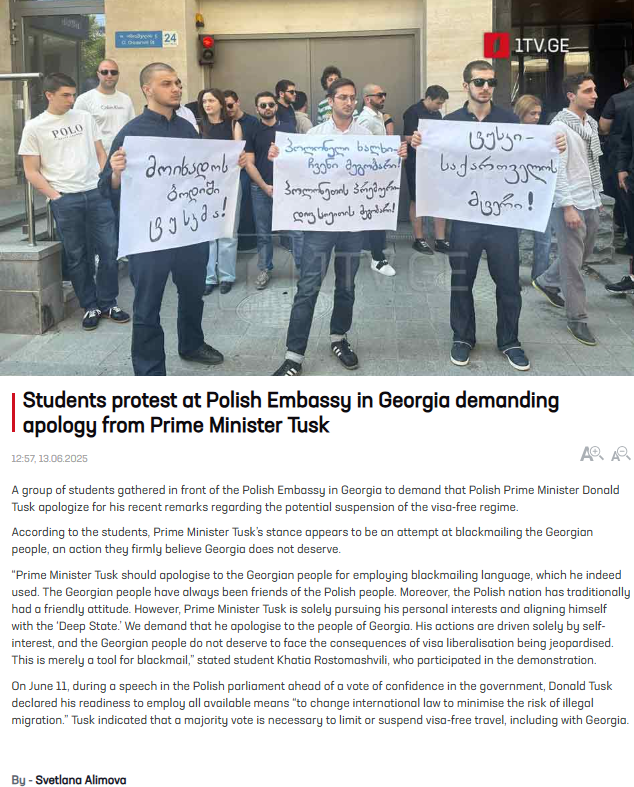
Screenshot from the “Georgian Public Broadcaster's” website, 13.06.2025
Supporters of “Georgian Dream” and Members of Youth Organization Portrayed as Independent Citizens by Propaganda Media
Vazha Kokaia
Propaganda media portrayed Vazha Kokaia, the chairman of the Georgian Dream youth organization in the Samgori district, as an independent participant in the rally. However, it is noteworthy that the TV channel Imedi has repeatedly covered Kokaia in the past in his capacity as a member of the ruling party’s youth wing, including in live broadcasts. On April 29, 2024, Vazha Kokaia spoke at the “National-Public Gathering” organized by Georgian Dream, alongside party leaders Bidzina Ivanishvili, Irakli Kobakhidze, Irakli Garibashvili, Kakha Kaladze, and Shalva Papuashvili.
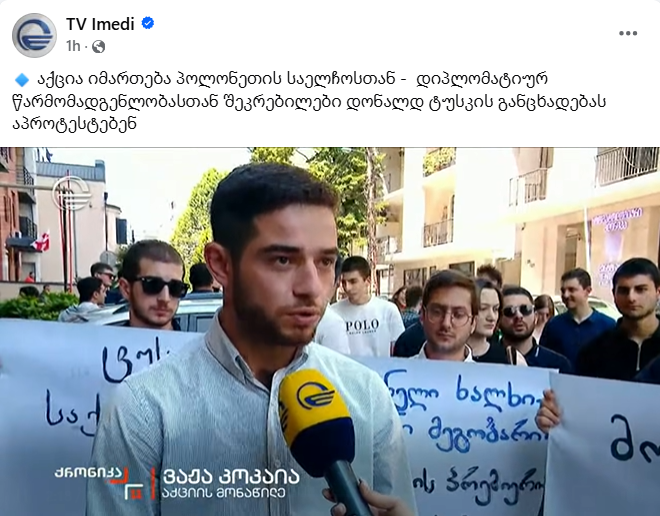
Screenshot from TV company “Imedi’s” Facebook page, 13.06.2025
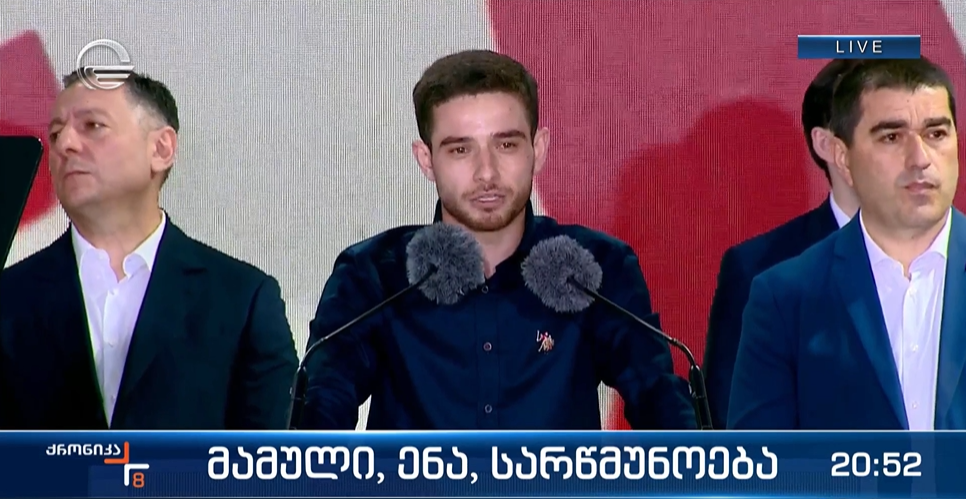
Screenshot from TV company “Imedi’s” Facebook page, 29.04.2025
It is noteworthy that one day before the rally organized by Georgian Dream in front of the Polish Embassy—on June 12, 2025—statements against Donald Tusk were circulated on Facebook in the form of advertisements. Among them, Vazha Kokaia responded to Tusk’s statement with a public post on his own Facebook profile. On the same day, this post was published as a graphic card on the official Facebook page of Georgian Dream’s youth organization. The same page also featured two more posts in response to the Polish Prime Minister’s statement, quoting Giorgi Chakvetadze and Erekle Gagnidze. According to Facebook’s Ad Library, these posts were sponsored shortly after being published.
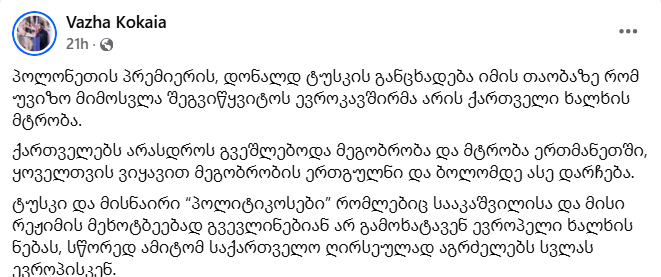
Screenshot from Vazha Kokaia’s Facebook profile, 12.06.2025
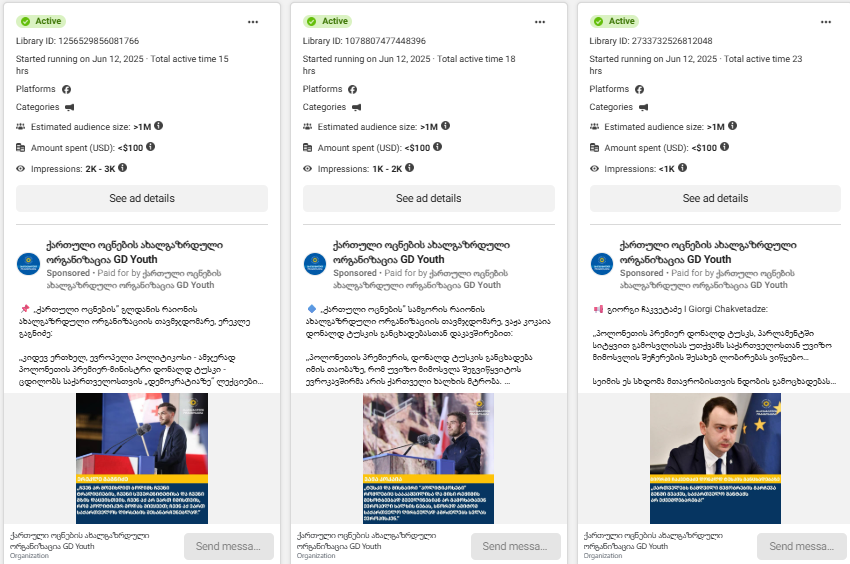
Screenshot from Meta’s Ad Library – Advertisement by the “Georgian Dream” youth organization on Facebook, 13.06.2025
Giorgi Shukvani
Giorgi Shukvani, who was portrayed as a participant in the rally by propaganda media, is a member of Georgian Dream’s youth organization. Information about Shukvani’s affiliation with the party can also be found in an article published on the Imedi TV channel's website. According to media reports, in 2024, Giorgi Shukvani was involved in putting up banners in Tbilisi to promote the "Foreign Influence Transparency" law (commonly referred to as the "Russian law") in a positive light. He also allegedly participated in attacks on students who were protesting outside Tbilisi State University during Irakli Kobakhidze’s lecture, as well as in efforts to disrupt a pro-European campaign in 2022.
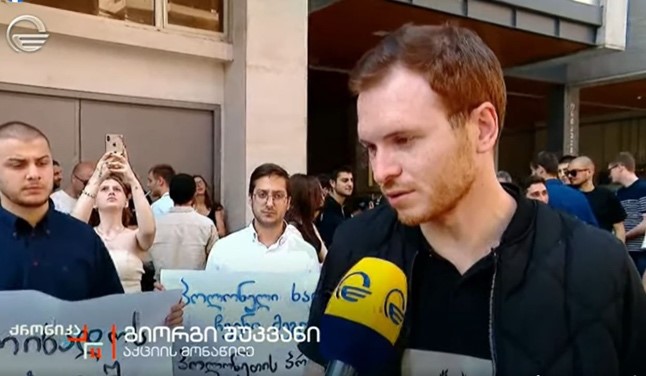
Screenshot from TV company “Imedi’s” website, 13.06.2025
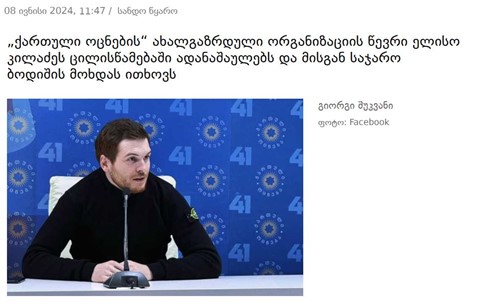
Screenshot from TV company “Imedi’s” website, 08.06.2024
On June 13, cards quoting Giorgi Shukvani were published on the Facebook pages of propaganda media outlets. None of these materials disclosed Shukvani’s affiliation with the party. He was presented simply as a rally participant in an article published on the Rustavi 2 website.
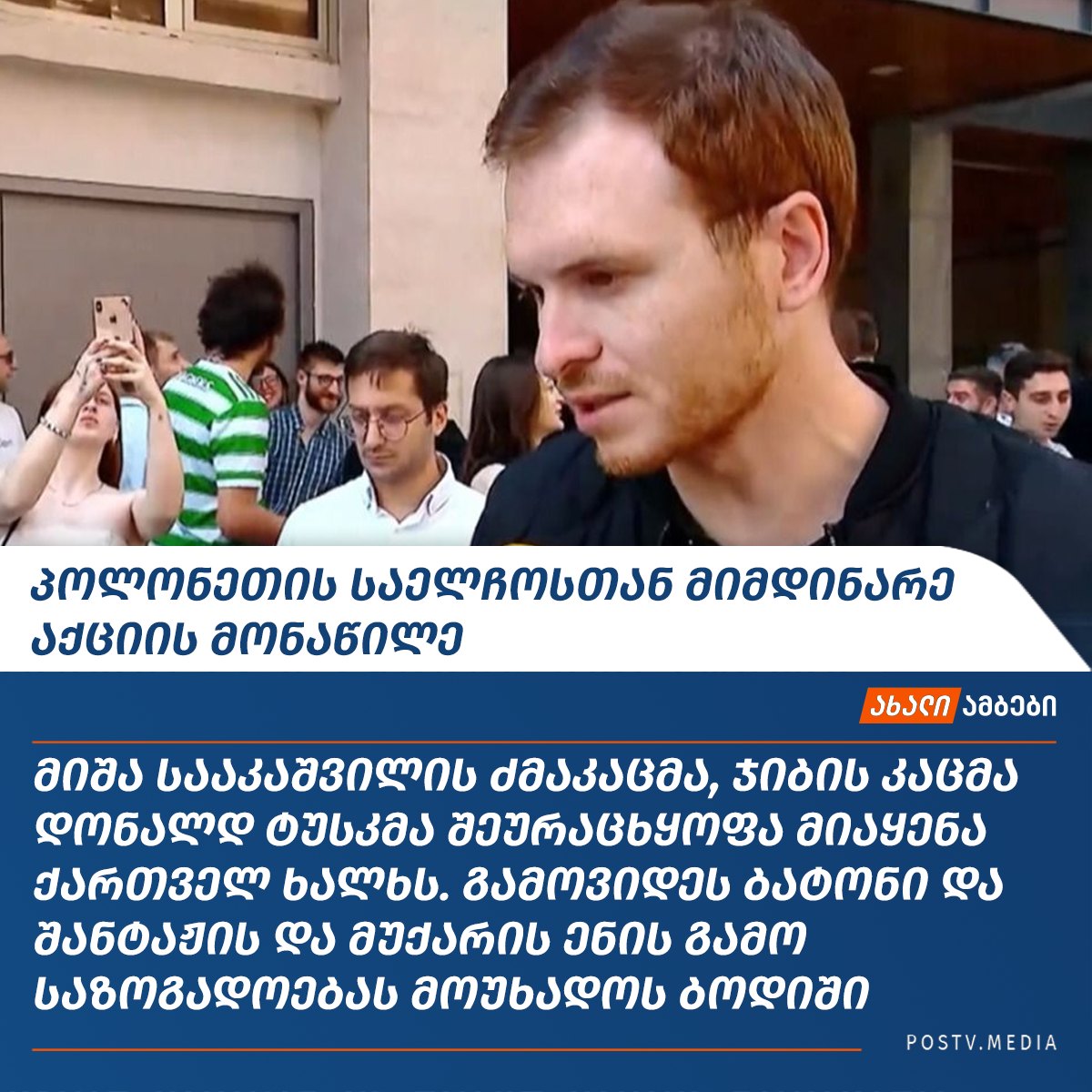
Cards posted on the Facebook pages of “Imedi” and “POSTV,” 13.06.2025
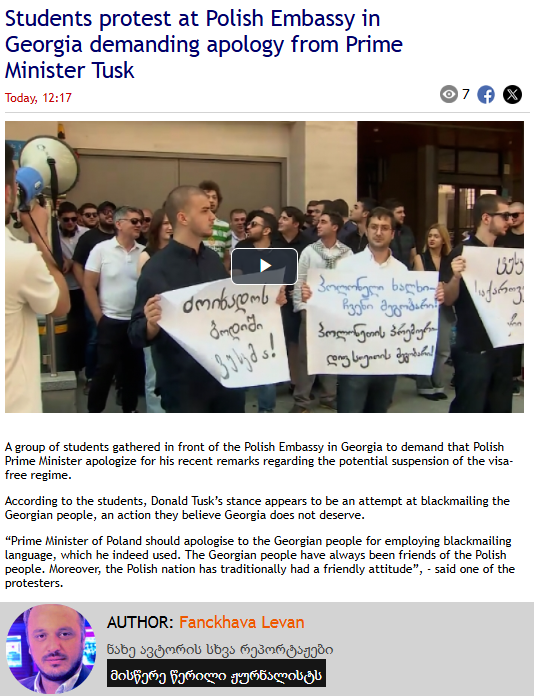
Screenshot from TV company “Rustavi 2’s” website, 13.06.2025
Vato Butskhrikidze
The Georgian Public Broadcaster introduced Vato Butskhrikidze to viewers as a student. However, according to publicly available information on his Facebook profile, he is the chairman of Georgian Dream’s youth organization in the Chughureti district. A photo of Vato Butskhrikidze with Vakhtang Gomelauri can also be found in public Facebook groups supporting Georgian Dream. Butskhrikidze posted this photo in one of the groups after Gomelauri resigned as Minister of Internal Affairs on May 28, 2025. At the rally organized by Georgian Dream in front of the Polish Embassy, Butskhrikidze held a poster that read:
“The Polish people – our friends! The Polish Prime Minister – a friend of the Deep State!”
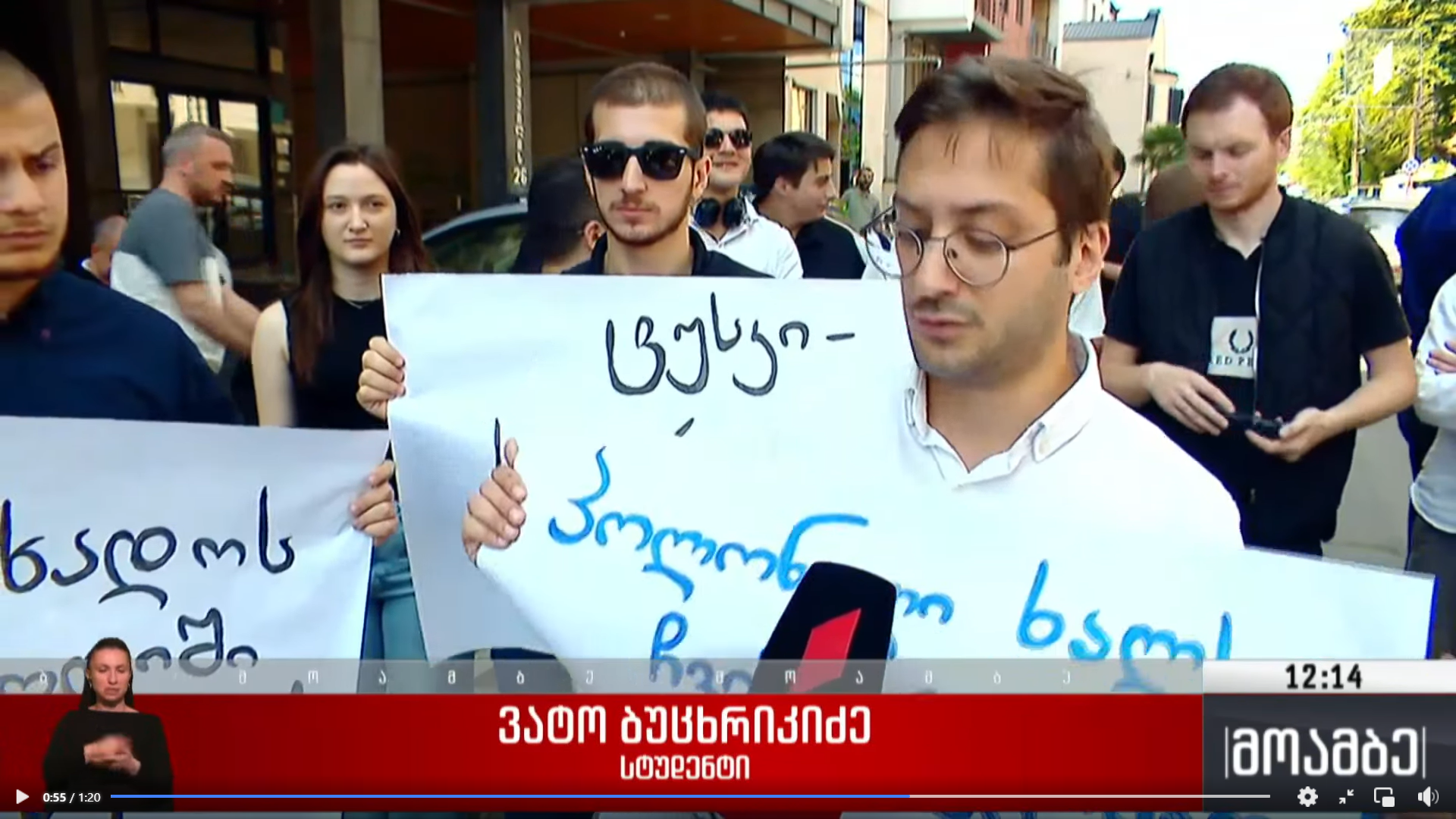
Screenshot from the “First Channel” website, 13.06.2025
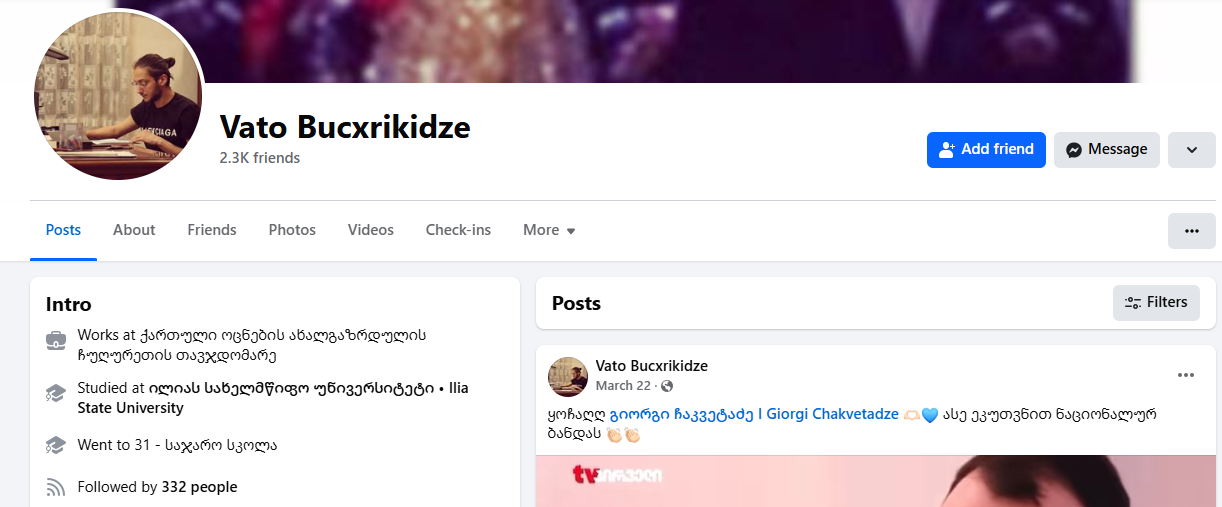
Screenshot from Vato Butskhrikidze’s Facebook profile
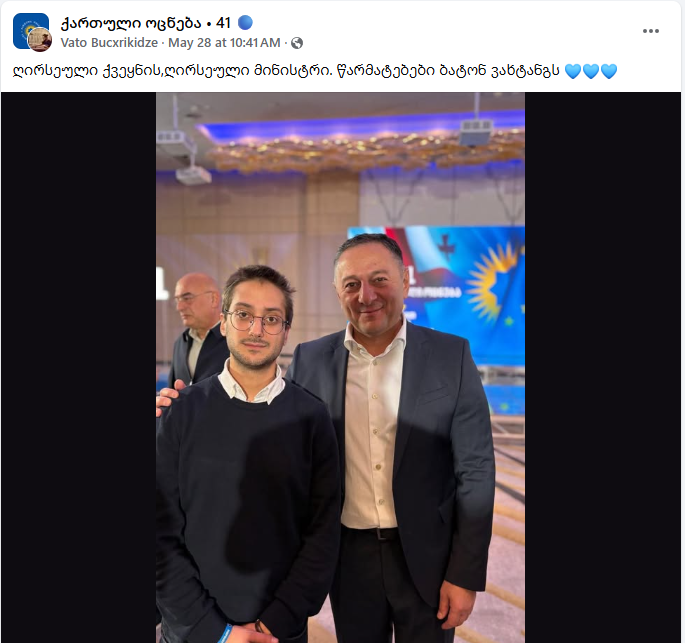
Vato Butskhrikidze’s post in a “Georgian Dream” supporter group, featuring a photo with Minister of Internal Affairs Vakhtang Gomelauri, 28.05.2025
Mariam Mchedlidze
Propaganda media also referred to Mariam Mchedlidze—who is affiliated with Georgian Dream—as a participant in the rally. Mchedlidze had been involved in campaigns supporting Georgian Dream and discrediting the civil sector as early as the 2024 election period. On the day of the parliamentary elections, Giorgi Mikeladze, anchor of the news program Mtavari on Adjara TV, stated live on air that several members of the organization Shame Movement had left the group—including Mariam Mchedlidze. Later, the organization officially denied this claim, stating that Mchedlidze had never been a member.
After the elections, Mchedlidze continued to take part in discrediting campaigns against Shame Movement in interviews with Adjara TV and Imedi.
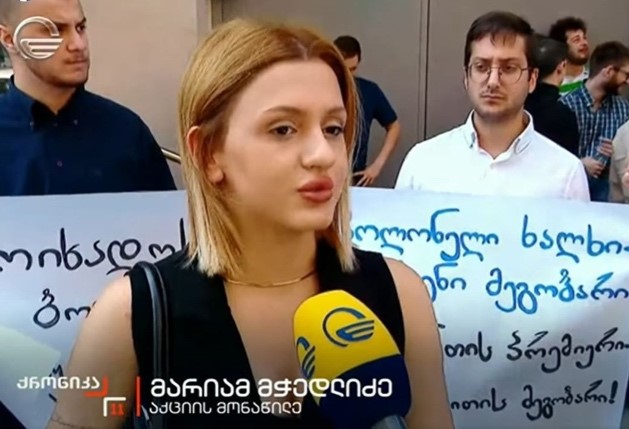
Screenshot from TV company “Imedi’s” website, 13.06.2025
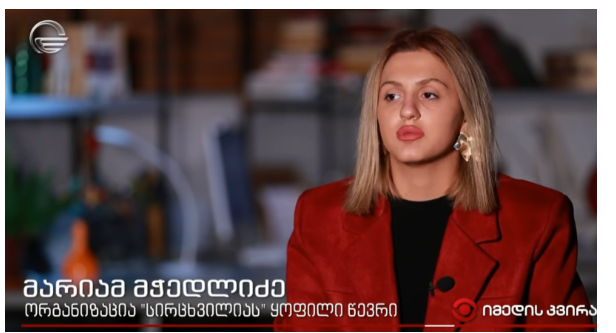
Screenshot from TV company “Imedi’s” website, 26.10.2024
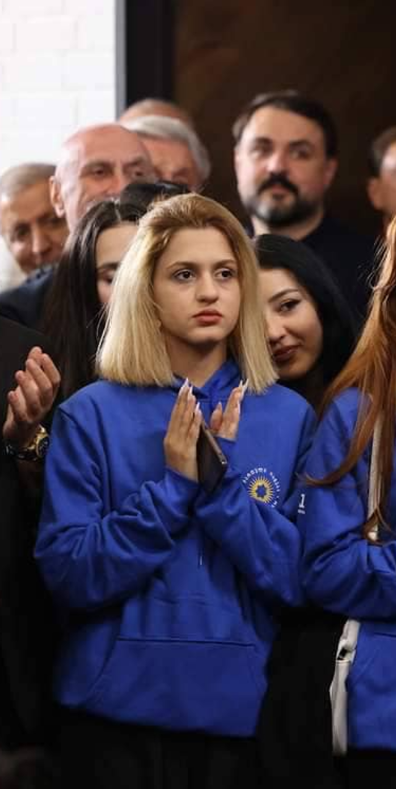
Mariam Mchedlidze’s photo
The Russian Example: Simulating Grassroots Protests by the Ruling Regime
Artificially amplifying the ruling regime’s discourse and staging support for Vladimir Putin’s policies in the name of independent citizens is a widespread practice in Russia. For example, in January–February 2021, Russian state propaganda media actively circulated videos of pro-Putin “flash mobs,” portraying them as spontaneous demonstrations by residents from various regions. However, as independent media outlet Meduza revealed, the video recordings were orchestrated by local members of Putin’s party, United Russia, along with officials and supportive businessmen, under orders from the federal leadership.
Notably, the Russian government has also used satellite organizations to simulate independent protests. For instance, in February 2012, while anti-government rallies were taking place on Bolotnaya Square in Moscow, pro-Putin demonstrations were held across 21 regions of Russia. “It’s symbolic that a political party did not organize the rally, but by a civic organization. This shows that the current government’s course enjoys broad support,” stated Anatoly Tikhomirov, Secretary of United Russia’s Regional Political Council, commenting on the outcome of the rally.
Putin’s regime has even extended its staged demonstrations beyond Russia’s borders. In 2023, Le Monde, in partnership with the Dossier Center and several European media outlets, exposed dozens of fake demonstrations across various European cities. Identical slogans—“Stop sending weapons to Ukraine! Zelensky is bombing Donetsk and Luhansk!”—were seen on two placards: one displayed in The Hague on January 28, 2023, during a climate change protest, and the other in Paris on February 11, 2023, during a demonstration against pension reform. The scheme operated as follows: a group of three individuals would photograph themselves holding anti-Ukraine or anti-NATO placards in a crowd, then circulate the images widely on social media. The presence of large crowds—gathered for entirely different causes—created the false impression that there was significant public support for the slogans. Based on internal documents from Russian intelligence services, Le Monde confirmed that the Russian state coordinated these operations.
___
Freedom of expression is a fundamental right in any democratic society. However, society must remain resilient and capable of distinguishing genuine protest from staged political performances, so that freedom of expression is not exploited as a tool for information manipulation aimed at silencing authentic public dissent.


